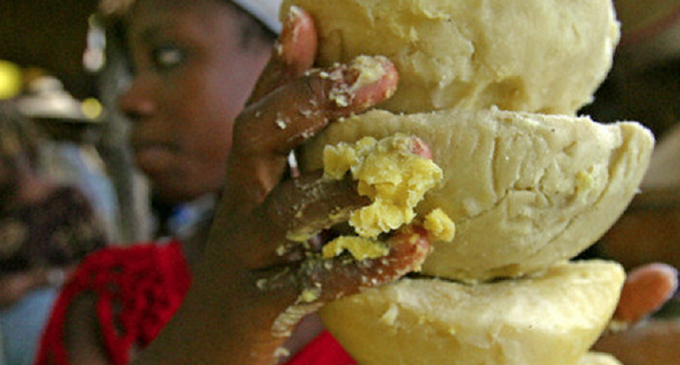WTO asks African nations to improve quality of shea butter to boost exports

The World Trade Organisation (WTO) says the shea butter market is expected to reach about $850 million by the end of 2027.
Delivering a virtual address at the 2024 shea annual conference organised by the Global Shea Alliance in Abuja, Ngozi Okonjo-Iweala, director-general of the WTO, said it is crucial to look at the shea value chain beyond farming and processing for butter.
She said over 16 million women in West Africa currently make a living from farming and processing shea nuts, estimating that women rake in about $237 million in direct income from shea.
“Shea butter has been referred to as women’s gold for centuries. Currently, over 16 million women in West Africa make a living from farming and processing of shea nuts,” she said.
“It is estimated that women make $237m in direct income from shea, 85 per cent of all shea exports are used as cocoa butter equivalence and 15 per cent are used for cosmetics.
“The cosmetics shea butter market is currently worth over $600m and it is expected to reach about $850m by the end of 2027. So we have to look at how African women can further benefit from this sector.”
‘OUR SHEA PRODUCTS DON’T MEET EXPORT REQUIREMENTS’
Okonjo-Iweala charged Nigeria and other African countries to improve the quality of their shea exports, noting that a lot of the commodities do not meet the sanitary and phytosanitary measures required for export.
She said despite the clear benefits and advantages of the production of shea, much of the potential of the commodity is still untapped.
“At the WTO, shea is one of the main agricultural export of over eight of our members including Benin, Burkina Faso, Côte D’Ivoire, Ghana, Mali, Nigeria and Togo. In Ghana alone, shea butter exports were valued at over $92m in 2022, and over one million women are involved in this sector,” she said.
“However, despite the clear benefits and advantages that shea brings to our women, much of the potential of this sector is still untapped. A lot of our shea products do not meet the sanitary and phytosanitary measures required for export, and this is hindering many countries from being able to export.
“In addition, it is crucial that we look at the shea value chain beyond farming and processing for butter. How can we in Africa begin to manufacture more finished shea products?”
The director-general said her organisation has been assisting Nigerians and other countries to improve the export of shea products, as this would impact positively on the economy of the concerned nations.
The WTO boss said when she took leadership of the trade organisation, she had met with a group from a shea cooperative in Oyo state who participated in an event organised by the Nigerian Export Promotion Council (NEPC).
“The WTO, International Trade Centre and NEPC had all worked together to build the capacity of the cooperative to produce good quality shea butter that met international safety and quality standards,” she said.
“This cooperative had once been prevented from exporting, but with the work done by all the agencies, they were able to receive the international safety certification that allows them to export to the United States, United Kingdom, Middle East and South Africa.
“The incomes of the women rose and even tripled. And many of them told me how they had been able to pay for their children’s university education and also invest in side businesses. This is the power of trade and how it can work for people.”
Okonjo-Iweala said the WTO was founded so that trade could help to raise living standards, create jobs and promote sustainable development, adding that “shea butter, specifically trade in shea butter, can help with these objectives.”
‘NIGERIA IS MAJOR SHEA PRODUCER IN THE WORLD’
On her part, Nonye Ayeni, chief executive officer of NEPC, said Nigeria is among the major producers of shea globally.
According to Ayeni, a cursory look at the global value of shea production and export showed that in 2023, the production and value of shea along the value chain was $2.17 billion, while it was expected to grow at a compound annual growth rate of 7.1 percent by 2030, representing the sum of $5.8 billion.
“It may interest you to know that the following countries account for the largest producers of shea in the world, representing 60 per cent of global production. These countries are Burkina Faso, Mali, Ghana, Nigeria and Cote D’Ivoire,” she said.
“Global market value for chocolate is estimated to be approximately $113.16bn in 2021 and expected to reach $156.74bn in 2030. For the cosmetics industry, it stands at $380.2bn and is expected to reach $453bn in 2026.
“Presently, more countries like India, Japan and South Korea are approving the use of shea butter as cocoa butter equivalent, apart from China, Italy and Netherlands, that are among the leading importers of shea butter, there is therefore ready market for quality shea butter in the international market.
“Nigeria is one of the major producers of shea in the world. It is on record that presently, the country has about five million hectares of shea trees which are grown in about 21 states of the federation especially in Niger, Kebbi, Oyo, Kwara, Benue and Federal Capital Territory.”
Ayeni said the opportunities for shea to transform Nigeria’s economy could be seen in the areas of job creation, value addition, and women empowerment.

















There are no comments at the moment, do you want to add one?
Write a comment